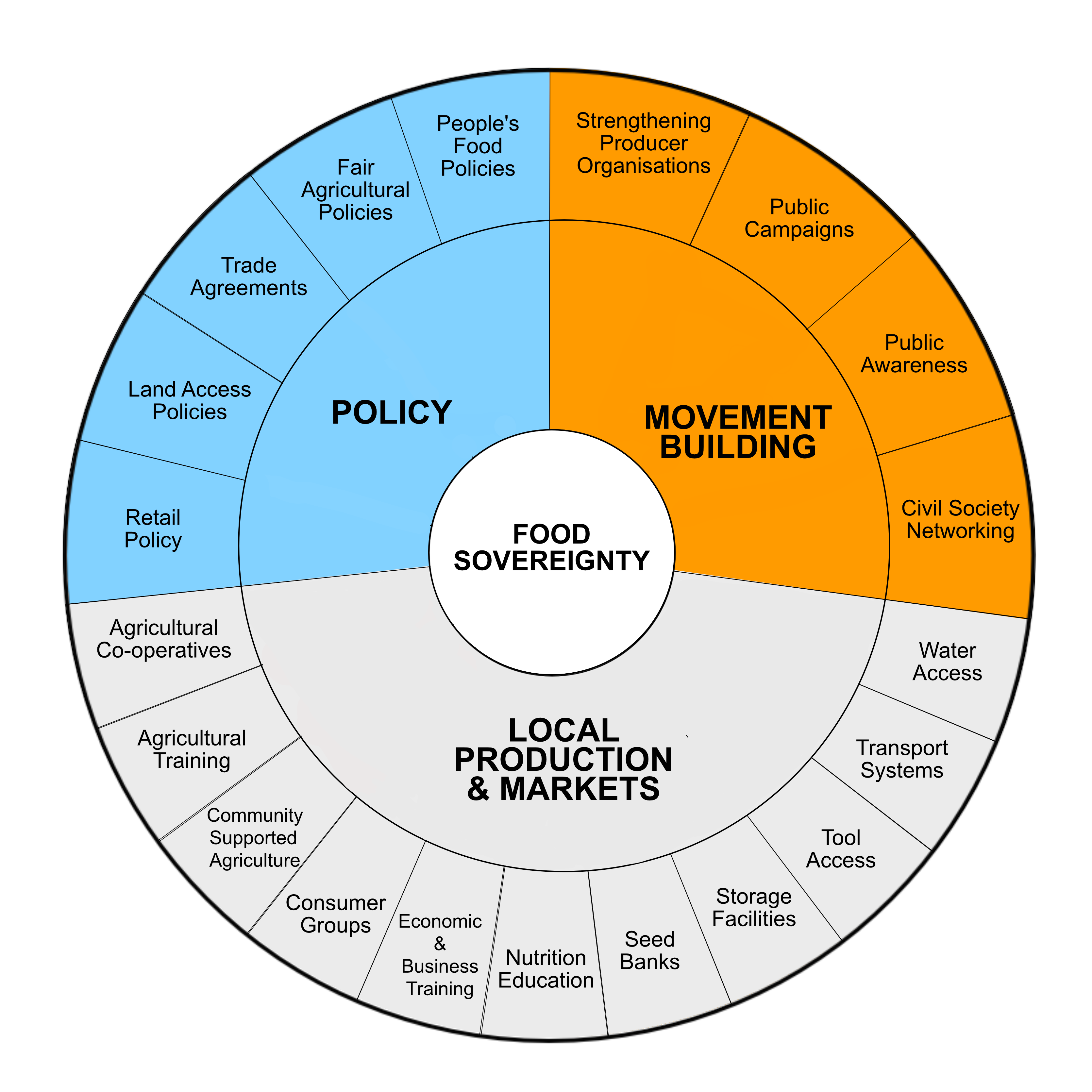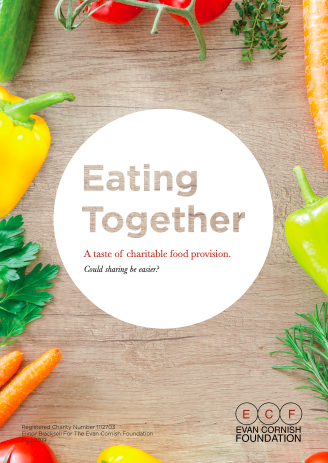Eating Together
As a response to rising concerns around poverty, social isolation and the environmental impacts of food wastage, the UK has seen a significant increase in charitable projects where food is an important part of their services. We commissioned a report to highlight and celebrate the diverse ways food can be used in the charitable sector, and how organisations use different methods to achieve similar aims.
Through a collection of case studies, our report 'Eating Together', aims to provide an insight into the logistics of running these charities, their real strengths and the difficulties they encounter. It also aims to promote cohesion between projects, allowing charities to help one another and share knowledge or facilities. Click on the image below to read the full report.
(May 2019)
Food Sovereignty
The current challenges of hunger, food insecurity and growing inequality have complex origins. From colonisation to subtle monopoly capitalisation, poorer countries see their land used to provide food, fodder and fuel for richer countries. These countries are locked into trade deals that dispossess them of their own land, leaving them unable to address food poverty in their own population.
Rather than dealing with the symptoms, Food Sovereignty addresses the causes. When people have true sovereignty over their food, the following systemic problems are also addressed: a) Food security b) Poverty c) Environmental crises d) Inequalities of power. In striving to achieve Food Sovereignty, we acknowledge the intrinsic relationship between these issues, and are aware it is not possible to address these problems in isolation.
Our report, 'Food Sovereignty: why it matters and how we can support it' can be read in full here.
We accept applications for projects that work towards Food Sovereignty under our Social and Economic Inequality Aim (see Our Aims). 

